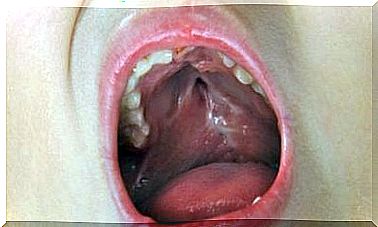Good Enough Mom According To Winnicott

Donald Winnicott was a pediatrician and psychoanalyst who made important contributions to understanding the mother-child bond. In his postulates, he shows how the mother’s performance influences the baby’s subsequent emotional development. Thus, he established the concept of “good enough mother” to explain the minimum foundations for the proper maturation of the baby.
The security acquired by the little one will depend on these vital first steps. Depending on whether (or not) children’s needs are met, a number of traits and pathologies can develop. However, the most powerful and remarkable aspect of Winnicott’s theory is the fact that mothers are neither expected nor necessary to be perfect. We’ll see why.
The functions of the mother
The early stages of a baby’s life are characterized by his inability to differentiate himself from his mother. The affective bond is extremely close and the child is totally dependent on her care. For the baby, there is no separation between him and the mother and, therefore, the mother’s behavior must be directed to detecting and satisfying the little one’s needs.

For the child to develop properly, the mother must play a role of physical support. She must feed, clean, clothe and protect the child, as well as picking her up frequently. Through all these actions, love for the baby is being demonstrated through body language. By identifying her needs and satisfying them, by being by her side, the mother helps her baby to avoid anguish.
But beyond that, it is essential that the mother provide emotional support. In other words, they must be open to accepting all the child’s emotional manifestations, welcoming and returning them in a more tolerable way.
The mother will not only deal with the child’s positive feelings, with their smiles and games. She must also be willing and available to receive high intensity negative emotions , crying, anguish and impulsiveness.
Through the support offered by the mother, the child knows well-being, love and understanding. In short, learn to feel safe. If this process occurs properly, the baby may face the transition of gradual separation from the mother, through which he will establish himself as an independent and differentiated being from her.
All these maternal behaviors are motivated by a feeling of “maternal concern” that appears even during pregnancy. It is a special sensitivity that allows the woman to identify with her child, meeting and recognizing their needs.
the good enough mother
However, it is unrealistic to expect a mother to always perform perfectly, that she understands the baby’s every cry, gesture, and discomfort first, that she can always respond immediately. We cannot maintain the expectation that she will always have the appropriate mood or patience to respond optimally.
That wouldn’t be realistic, and it wouldn’t be necessary either. In fact, the child is able to tolerate a certain degree of frustration, and as he grows up, this threshold will also increase. The mother’s temporary absence, her exhaustion at specific times, or her inability to understand the child’s crying sometimes will not harm her emotionally.

Mom doesn’t have to be perfect, just good enough. That is, she must be present and available to the child, must meet their demands, contain their anxieties and demonstrate love. But since she’s a human being, she’s going to fail at times, and that’s natural.
Harmful consequences for the baby appear when the mother consistently fails to care for and support the child. When she shows unpredictable behavioral changes that prevent the baby from developing confidence. When, as a general rule, she is not physically or emotionally available.
Even if this happens, a mother who is able to see her mistakes and correct them will be doing a great job, as it has been shown that love and care can repair the damage and build a secure bond, if this is rectified.
you don’t need to be perfect
In short, if you are a mother and you feel the pressure of perfection on your back, get rid of it. You can make mistakes, feel exhausted at times, and lose your temper at other times. This is natural and no problem: you are good enough.









